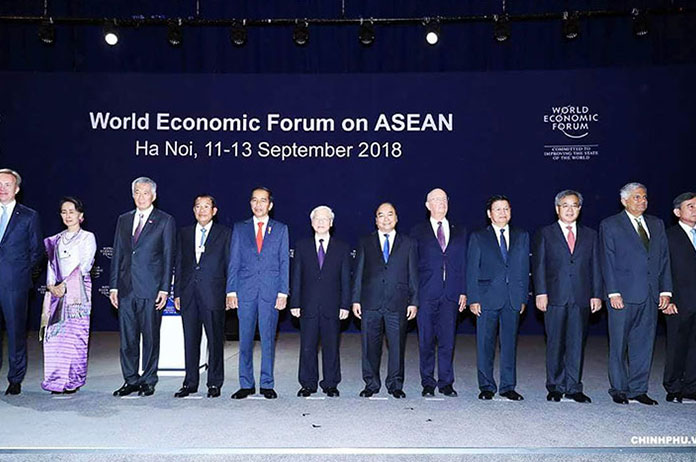Cambodia Embarks On The Fourth Industrial Revolution

In today’s world, more countries are looking for innovative strategies to deal with the rising uncertainties they are facing. Asean, not cushioned from the same concerns, is at a crossroads with the rapid evolution of the geopolitical and geo-economic spheres.
The Fourth Industrial Revolution is evolving at an unprecedented speed, and its impact will be felt everywhere. This is the main theme at this year’s World Economic Forum held in Hanoi. In order to adapt to and make full use of the Fourth Industrial Revolution, ASEAN member countries are reforming their institutions and regulations to varying degrees.
Vietnam’s Prime Minister Nguyen Xuan Phuc, the host of this year’s forum, proposed a five-point strategy for ASEAN: fostering digital connectivity and data sharing; harmonizing the business environment; building synergies among innovation incubators; managing talents; and creating an education network for life-long learning.
Indonesian President Joko Widodo stressed that “with creativity, with energy, and with collaboration and partnership, we, humanity, shall enjoy abundance and we shall produce infinite resources.” He warned about the misguided belief and misperception that the rise of some will lead to the decline of others, saying it is a dangerous notion.
In his remarks at the forum, Prime Minister Hun Sen set out a list of priority areas that Cambodia and ASEAN should focus on to enhance the application of technology for socioeconomic development and poverty reduction. Cambodia is concerned that digitalization and automation might lead to job losses and increase inequality. The Cambodian government is already developing policies to seize opportunities and overcome the challenges that come with the Fourth Industrial Revolution.
First, the government is going to double its investment in upskilling the country’s human capital, especially in entrepreneurship and innovation. Second, the Cambodian premier said a bigger investment is needed to develop digital platforms that can be used to share knowledge. Third, he said more support mechanisms for the private sector are needed, especially for digital literacy, digital infrastructure development, and research and development.
“Cambodia can leapfrog if it can maximize its comparative advantages in terms of the demographic factor and its open economic structure. Hence, more investments are needed in education and knowledge governance,” Mr. Hun Sen said. He added that he was hoping to encourage innovative ways to narrow the brain gap. “What ASEAN can do, Cambodia should be able to do as well and, if possible, better, because of the advantage of hindsight. This can be done by investing more in human resource training in Cambodia.”
The idea of a Fourth Industrial Revolution was first put forward by Klaus Schwab, a founder and executive chairman of the World Economic Forum. He argues in his book Shaping the Fourth Industrial Revolution that governments, businesses, and individuals must make the right strategic decisions regarding the development and deployment of technologies. “The scale, complexity and urgency of the challenges facing the world today call for leadership and action that are both responsive and responsible. With the right experimentation of the spirit of systems leadership by values-driven individuals across all sectors, we have the chance to shape a future where the most powerful technologies contribute to a more inclusive, fair, and prosperous community,” he wrote.
In Hanoi, Prime Minister Hun Sen and several other leaders from ASEAN stressed the importance of human capital as the nations embark on the Fourth Industrial Revolution. “Human capital, technological innovation, and artificial intelligence need to be utilized side by side and with equal emphasis for Industry 4.0 to work,” he added.